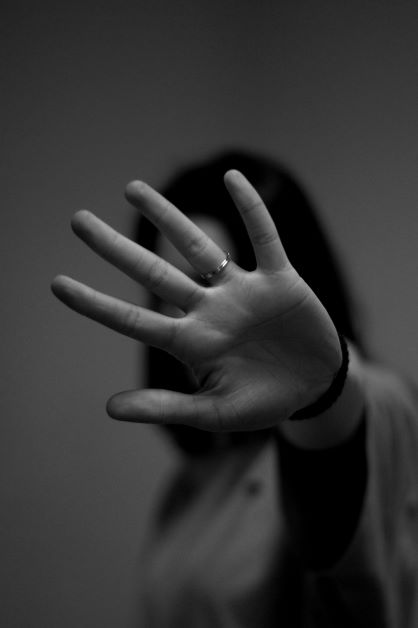Lately it has become all the rage to refer to all men who abuse women as “narcissists.” In fact the terms “abuser” and “male abuser” seem to be fading away. I generally don’t like to debate about word choices, but this time it matters. The change to using the term “narcissists” is a mistake. Here’s why.
First, it’s just plain not true. The solid majority of abusers, including a majority of ones who get arrested for violence towards women, are not narcissists. Research has found that abusive men are not much more likely than non-abusers to have a narcissistic personality disorder. Abusiveness can look a lot like narcissism. Abusers demand that you look up to them; they refuse to be accountable for their actions; they turn on the charm when they have a goal in mind and want people on their side to help them get there; and they’re comfortable lying. They think the problem resides not in them but in other people – specifically, women they’ve been involved with.
 But abusiveness is different in crucial ways. Abusers don’t have any particular similarities in their childhood emotional injuries, whereas narcissists do. Abusers can hide their abusiveness from the public for a lifetime and no one other than their intimate partners and children will know the truth; whereas narcissists leave a trail of enemies behind them (though they also fool some of the people along the way). Abusers are overwhelmingly influenced by attitudes, values, and behaviors that they’ve learned from key role models (male relatives, their own peers, men in pornography, cultural icons) and from the misogyny of the society at large; whereas narcissists are largely shaped by psychological injuries. (And this means, for example, that a true narcissist will hurt men in similar ways to how he hurts women.)
But abusiveness is different in crucial ways. Abusers don’t have any particular similarities in their childhood emotional injuries, whereas narcissists do. Abusers can hide their abusiveness from the public for a lifetime and no one other than their intimate partners and children will know the truth; whereas narcissists leave a trail of enemies behind them (though they also fool some of the people along the way). Abusers are overwhelmingly influenced by attitudes, values, and behaviors that they’ve learned from key role models (male relatives, their own peers, men in pornography, cultural icons) and from the misogyny of the society at large; whereas narcissists are largely shaped by psychological injuries. (And this means, for example, that a true narcissist will hurt men in similar ways to how he hurts women.)
Multiple research studies demonstrate that abusive men learn their abusiveness from other men, not from their supposed bad experiences with women. When we label an abuser a “narcissist,” we’re contributing to the likelihood that people are going to blame his mother – often thought of as the cause of narcissism, rightly or wrongly — rather than blame the men who socialized him. And this is especially unfair to mothers given the statistical likelihood that his mother was a victim of abuse herself – usually by the future abuser’s father.
 My final concern is my biggest one of all. If abuse is caused by attitudes taught by the society, then the whole community – or the whole society – is responsible to stop it. We all have to change community attitudes about domestic abuse, stop colluding with abusers, stop letting D.A.’s let abusers off the hook, stop disbelieving women and girls who disclose abuse, and stop accepting anti-female attitudes in general.
My final concern is my biggest one of all. If abuse is caused by attitudes taught by the society, then the whole community – or the whole society – is responsible to stop it. We all have to change community attitudes about domestic abuse, stop colluding with abusers, stop letting D.A.’s let abusers off the hook, stop disbelieving women and girls who disclose abuse, and stop accepting anti-female attitudes in general.
But if the issue is narcissism? Well, then, the problem is defined as the messed-up family he came from, and the community gets off the hook. No one has to confront the huge societal problem of chronic and pervasive male violence against women. It’s a big cop-out. And if we take this path, the problem is never going to go away.
Let’s go back to calling abusers abusers. (And even for the small percentage of abusers who fit the requirements for narcissism, they’re still also abusers; so let’s keep the focus where it belongs.)
Photo credits in order:
Lundy’s new book In Custody takes on domestic abuse and the anti-mother corruption in the family courts — but this time in a suspense novel.






Thank you so much for this blog. I have been saying this over and over in posts and conversations- stop calling abusers narcissist. Abuse is a learned behavior and attitudes towards those an abuser feels they have the right to treat that way, whereas a barc will be so consistently with everyone. I will use your blog as a reference.
Thank you for clearing the air, once again, about what abuse is, and what it’s not. Thank you for dispelling the confusion between abuse and NPD, which are two completely distinct issues (although they can be mutually inclusive).
The term “abuser”, as defined in your DV books, cannot be replaced by any other. When we give ourselves permission to loosely and interchangeably use words such as narcissist, chauvinistic, sexist or egotistical to refer to abusers, we run the risk of not fully grasping the nature of abusers’ behaviour and its causes. As a result, the abusers’ damaging conduct is trivialized and attributed to a mere personality disorder or to a traditional/male-dominated culture rather than a sense of entitlement instilled since childhood. This is all the more reason for the abuser to call himself a “victim”, elicit sympathy from others and continue to wreak havoc on women’s lives.
Lundy is saying abusers behaviour is learnt from patriarchal society so it is sexist in origin
Your book why does he do that was a lifesaver for me. I will never let go of my copy. I have one question that you might be able to answer. My abuser sometimes wanted to have sex as many as a dozen times in the same day. It did not feel the least bit loving but abusive. Was that a dominance thing? How to explain that to myself? I’ve had no luck googling it.
Hi Donna, I have been a victim of abuse by my husband to whom I’ve been married 23 years.
Sadly, he had mini mini abusive behaviors which I did not realize were abuse until I read, “why does he do that? “ His sexual entitlement displayed itself in many ways, including demanding sex and then getting angry if he did not get it. Your description of your abuser wanting sex up to a dozen times a day sounds horribly abusive as any demand for sex is abuse. I’m not sure if you know about http://www.BTR.org but their website has dozens of free podcasts which describe what sexual abuse looks like. I did not realize that I have been a victim of sexual abuse until I listened to many of their podcasts and identified with the women and their stories. I wish you much care on your journey of healing from abuse.
in my case
I have to say my ex has both is abusive and a naracist
remember there are different types of naracistic
and based on my experience being with 3 in my life
they all had both
it is not far off to say and believe abusers can also have naracistic tendencies too
or be both
that is why they can be dangerous
not only that some are psychopaths
Mine also has NPD. Not recognizing that fact at first, was dangerous for me. My husband is delusional. He ticks every box for NPD. I figured it out by trying to go No Contact as best as I could while still having to live under this roof. I realized also that his father also had NPD. There are very specific behaviors that narcs engage in, that not all abusive men engage in.
[I guess basically what I am trying to say is that you don’t treat a virus with an antibiotic.]
This is so important. Thank you. I work with abused women and every one of them describes their ex as a narcissist. This difference is so important, especially, as you say, in getting to the systemic root of the matter so we can effect real and lasting societal change.
“But if the issue is narcissism? Well, then, the problem is defined as the messed-up family he came from, and the community gets off the hook.”
That’s probably why it’s more appealing to call them narcissists. In this country we aren’t great at recognizing and dealing with systemic social issues. We find it much more appealing to blame things on people as separate individuals.
I think you’re spot-on.
I’m a big fan, but this is a terrible title. Narcissists ARE abusers, by nature. Maybe a better title would be psychological abusers vs physical abusers.